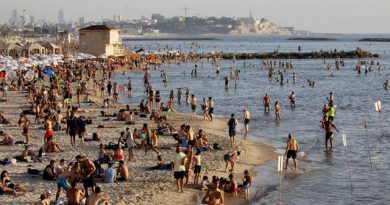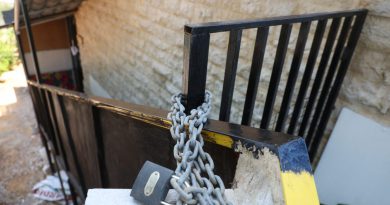Iranian attempt to unfreeze assets held by US authorities is rejected by the International Court of Justice
The top court of the United Nations rejected Tehran’s legal request on Thursday to release $2 billion in Iranian central bank assets that had been held by American authorities in order to pay compensation to victims of an Iranian-linked bombing in Lebanon in 1983 and other incidents.
The International Court of Justice declared that it lacked jurisdiction to address the Iranian claim pertaining to the main Markazi Bank in a decision with a 10–5 majority.
The majority “upholds the objection to jurisdiction raised by the United States of America relative to the claims of the Islamic Republic of Iran related to the bank,” according to the vice president of the world court, Kirill Gevorgian.
The international court also determined that several other American actions to collect Iranian and Iranian-Americans’ assets violated a 1955 treaty between the two countries and ordered them to negotiate compensation in a lengthy, 67-page ruling. They will have to go back to the Hague-based court for a decision if they are unable to contact a number.
The majority of the lawsuit, however, was centred on Bank Markazi and its frozen assets, which included $1.75 billion in bonds and accrued interest and were kept in a Citibank account in New York. The 1955 Treaty of Amity was cited by the court as evidence that it lacked jurisdiction because central banks are not covered by its provisions.
Both nations expressed general satisfaction with the choice made on Thursday.
While the United States was upset with some portions of the verdict, on the overall, Deputy State Department spokesman Vedant Patel indicated that Washington was pleased.
In general, Patel told reporters, “We believe that today’s verdict is a huge blow to Iran’s argument.”
The official IRNA news agency reported on Thursday that the Iranian foreign ministry praised the decision as “an evidence of the firmness and trustworthiness of (Iran’s) demand.”
Tehran would pursue its demands using “all diplomatic, legal, and judicial methods,” according to the statement.
Iran portrayed the asset freeze as a plot to topple the regime in Tehran and a breach of international law during proceedings last year.
After the U.S. Supreme Court decided that funds held by Iran’s central bank could be used as reparations for the 241 American servicemen killed in the 1983 bombing, which was thought to have been linked to Tehran, Iran brought its claim before the international court in 2016.
A second American military facility in Lebanon was bombed following the first.
After a U.S. military post in Lebanon was bombed, another explosion nearby killed 58 French soldiers. Notwithstanding Iran’s denials, a U.S. District Court judge determined Tehran to be at fault in 2003. According to the judge’s decision, at the time, the Iranian ambassador to Syria called “a member of the Iranian Revolutionary Guard and gave him orders to coordinate the Marine barracks bombing.”
The judges accepted U.S. lawyers’ contentions that the frozen central bank assets were state holdings not covered by the treaty, which Washington terminated in 2018 in response to an order by the International Court of Justice in a separate case to lift some sanctions against Iran.
Richard Visek, the head of the US legal team, advised judges to utilise the legal doctrine known as “unclean hands,” which prohibits a country from bringing a case because of its own criminal activities connected to the case, for the first time during last year’s proceedings.
But, that defence was disallowed by the court’s decision on Thursday.
Iran claimed that the asset restriction violated the 1955 Treaty of Amity, which guaranteed the two nations’ friendliness and cooperation. Since militant students seized control of the American embassy in Tehran in 1979, there has been no diplomatic exchange between the U.S. and Iran.



